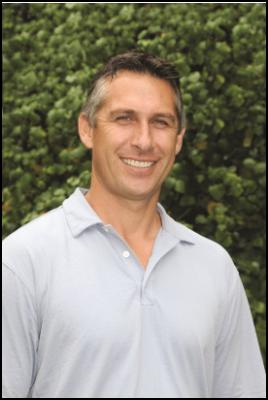Framework for biomedical research with Māori
7 October, 2016

Maui
Hudson
New guidelines provide a framework for biomedical research with Māori
As biomedical research practices become more sophisticated, protecting the cultural and ethical interests of those who donate tissue or take part in genomic research has become more important than ever before.
The University of Waikato’s Associate Professor Maui Hudson led a Health Research Council-funded national research project to develop culturally informed guidelines for ethical research to protect Māori interests in biobanking and genomic research.
The Te Mata Ira Genome and He Tangata Kei Tua Biobanking guidelines draw on the foundations of mātauranga (Māori knowledge) and tikanga (Māori protocols and practices) to establish frameworks for researchers engaging with Māori for genomic research and biobanking.
Associate Professor Hudson says that with the increasing prevalence of genomic research, biobanks and the international nature of research collaborations, it’s timely that Māori views on the practices are explored, and ultimately, protected.
“You have this altruistic factor where Māori genuinely want to help by contributing to research that aims to improve health outcomes. But where it comes a bit unstuck is that in consenting to donate tissue for what’s called ‘future unspecified research’, you are essentially consenting to be uninformed about how your donations are being used.
“In the discussions we’ve been having with Māori we were asking ‘what would make you feel more comfortable about contributing to these kinds of medical research practices, and how can these researchers maintain your trust throughout the process?’”
Part of the answer, says Associate Professor Hudson, is having robust guidelines that represent and protect Māori interests.
“The resulting guidelines outline the cultural foundation and provide culturally grounded and ethical frameworks for biobanking and genomic research, along with guidance on engaging with Māori and appropriate methods for research and the resulting analysis and reporting.”
Associate Professor Hudson and his team of researchers consulted a wide range of stakeholders to determine what was included in the guidelines, including iwi groups, scientists with support from an international indigenous advisory group.
A collaborative approach
Sociologist Dr Barry Smith, who provided ethical and analytical input to the project, says one of the most important aspects of these guidelines is that they give Māori a clear voice in an area of research that impacts them.
“With such rapid change going on in genetic research, together with the sense that the field of ethics is having trouble keeping up with the change, this project allowed us the opportunity to gather information from a wide variety of relevant people and groups to create quite a specific set of guidelines that captures ethical thinking from a Māori perspective,” says Dr Smith.
“It’s rare to have such specificity in a document that outlines ethical approaches to a particular area of research, so this project is unique, and very rewarding, in that respect given the many guidelines are more generic in nature.”
Moe Milne, an independent consultant and Māori health advocate, facilitated many of the conversations with Māori as the research team were gathering information. She says the more in-depth the explanations of genetic research are for Māori, the more likely they are to work in partnership with researchers.
“Māori want the opportunity to protect their whakapapa, and genetic research can provide an avenue for them to do that, but they want to understand it thoroughly and come to a decision that encompasses these learnings and their spiritual beliefs,” says Ms Milne.
“So what it comes down to is contributing to the wider good of genetic research, while maintaining those core values and beliefs."
Guidelines launch
The He Tangata Kei Tua Guidelines for Biobanking with Māori will be launched at the Australasian Biospecimen Network Association in Adelaide on 13 October, and the Te Mata Ira Guidelines for Genomic Research with Māori will be launched at the free, public Healthier Lives event in Wellington on 18 October.
--


 Mānuka Charitable Trust: Mānuka Charitable Trust Warns Global Buyers Of Misleading Australian Honey Claims
Mānuka Charitable Trust: Mānuka Charitable Trust Warns Global Buyers Of Misleading Australian Honey Claims  Engineering New Zealand: NZ Building System Needs Urgent Improvement
Engineering New Zealand: NZ Building System Needs Urgent Improvement GNS Science: Bioshields Could Help Slow Tsunami Flow
GNS Science: Bioshields Could Help Slow Tsunami Flow Transport and Infrastructure Committee: Inquiry Into Ports And The Maritime Sector Opened
Transport and Infrastructure Committee: Inquiry Into Ports And The Maritime Sector Opened Netsafe: Netsafe And Chorus Power Up Online Safety For Older Adults
Netsafe: Netsafe And Chorus Power Up Online Safety For Older Adults RBNZ: 10 Cent Coin With King Charles III Image Now In Production
RBNZ: 10 Cent Coin With King Charles III Image Now In Production


